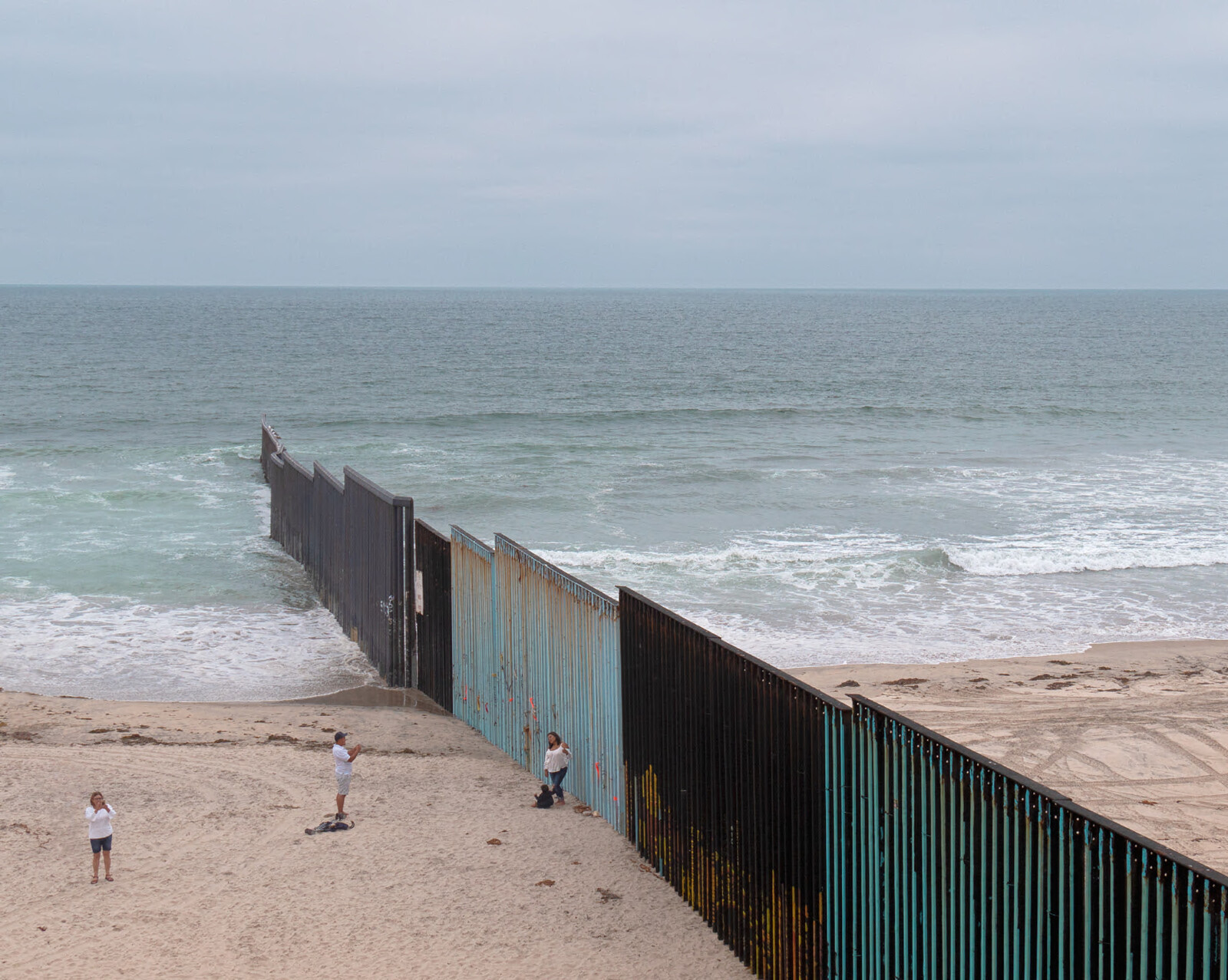July 11–October 12, 2019
The Shelley & Donald Rubin Foundation is pleased to present The Watchers, an exhibition that focuses on the multi-faceted nature of surveillance and privacy in contemporary society, and the subsequent production and obscuration of information and news. Artists in the exhibition include Vito Acconci, American Artist, Elaine Byrne, Lieven De Boeck, Anne Deleporte, Hasan Elahi, Karin Ferrari, Orkhan Huseynov, Pedro Lasch, Rafael Lozano-Hemmer, Cannupa Hanska Luger, Arnold Mesches, Trevor Paglen, and Amie Siegel. An opening reception will take place on Thursday, July 11 from 6 to 8pm at the Foundation’s exhibition space, The 8th Floor, in New York City.
The Watchers is loosely organized as a narrative about surveillance, presenting examples of stalking, sousveillance, fortified borders, facial recognition technology, as well as proposals for World Trade Center Memorials in cities across the world. Artworks featured in the exhibition that cite oppressive uses of tracking devices are juxtaposed with artistic manipulations of surveillance that model political agency and resistance.
Vito Acconci’s 1969 Following Piece serves as a person-to-person example of surveillance and spying, with Acconci performing as a stalker who submits to the path undertaken by randomly selected individuals. In her 1999 film The Sleepers, Amie Siegel simulates a voyeuristic perspective that fluctuates between a safe remove and one that penetrates the boundary between the private and public spheres. Orkhan Huseynov’s videos Dear Beloved (2017) use the intimate details of scam emails to emphasize their emotional and manipulative nature. With a more incisively political point of view, Arnold Mesches’ series, The FBI Files, is based on his earlier works made in response to the trial of Julius and Ethel Rosenberg that were stolen from his studio in 1956, allegedly by the FBI. After the Freedom of Information Act was passed, Mesches recovered 760 pages of documents tracking his activities between 1945 and 1972, turning many of the redacted manuscripts into paintings and collages.
Pedro Lasch’s series of paintings, Phantom Limbs (2001–11), depict the Twin Towers as international memorials in numerous locations—Baghdad, Darfur, Guantanamo, among others—where they have been commemorated with light projections similar to the annual Tribute in Light. Hasan Elahi’s Woodland (2019) looks at the heightened anti-terrorist security measures that have been introduced since 9/11. The work is a composite of his self-surveillance – or sousveillance – a practice Elahi took up after being erroneously placed on a terror watch list.
In her Fortified Boundaries series, Elaine Byrne photographs difficult to access locations at a number of borders: U.S./Mexico, Spain/Morocco, Greece/Turkey, and Spain/U.K. At each site, Byrne hones in on both the mundane and spectacular to question the reasons for borders, recognizing that economic interests are as much at stake as military security. With ties to the much contested land of Standing Rock, Cannupa Hanska Luger’s The Weapon is Sharing (This Machine Kills Fascists), 2017, pays tribute to stories disseminated through what the artist describes as “throwaway technology” associated with activism. In recreating these technological devices in ceramic, Luger inscribes fleeting messages into the art historical record.
Rafael Lozano-Hemmer’s Level of Confidence (2015), uses facial recognition software—typically used by military and police forces to search for suspicious persons—in an attempt to match the faces of gallery visitors with a group of 43 disappeared students from a rural teacher’s college in Ayotzinapa, Mexico, who were forcibly taken by local police in collusion with organized crime. Lieven De Boeck created M.I.R.R.O.R.Nr3.eagle (2010) from the simplest of surveillance technology to literally reflect on the introduction of The Patriot Act and other policy changes that followed the 9/11 terrorist attacks. Sandy Speaks (2017) by American Artist uses an artificial intelligence chat platform to pay homage to Sandra Bland, a 28-year old African American woman who was found dead in a jail cell after being pulled over for a minor traffic violation.
Works by Anne Deleporte, Karin Ferrari, and Trevor Paglen make reference to systems of information that are at least partially obscured. Paglen’s Symbology, Volume IV (2013) is a nod to the totemic visual language of military culture, in which symbols and insignia that have historically been associated with cults, secret societies, and mystics are used by military units to allude to covert networks and operations. In Hyperconnected (The Whole Picture), 2017, Ferrari deconstructs the logos and interface design of the web, visualizing the networks that frame our experiences online. Deleporte’s Photo-frescos incorporate pages of the daily newspaper as a canvas, highlighting images and fragments of news to create a symbolic narrative. Through a system of obscuration, Deleporte flags what she sees as essential, visually demonstrating how information is filtered and synthesized on an innate basis.
Artworks presented in The Watchers reveal gaps where our individual and collective senses of privacy have been disrupted, pointing to instances when knowledge that ought to be publicly accessible has been obscured. It is the second installment in a two-year series of exhibitions titled Revolutionary Cycles. Each of the six installments is organized thematically, to consider how labor, gender, the media, surveillance, and family shape our collective experience in the current political climate.
The exhibition is curated by Sara Reisman, Executive and Artistic Director of the Shelley & Donald Rubin Foundation. A program of events will be organized in conjunction with the exhibition and details will be announced soon.
Information
Hours: Tuesday–Saturday 11am–6pm
info [at] the8thfloor.org
RSVP for the opening



